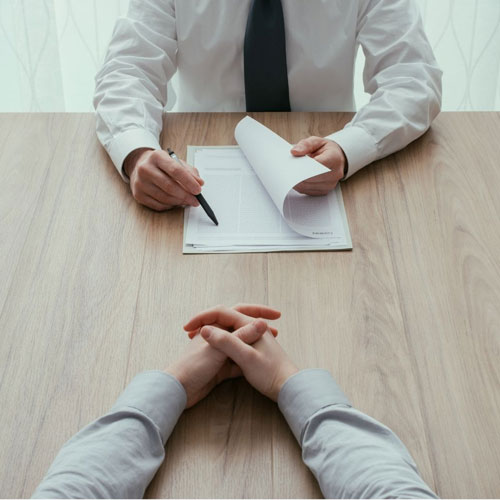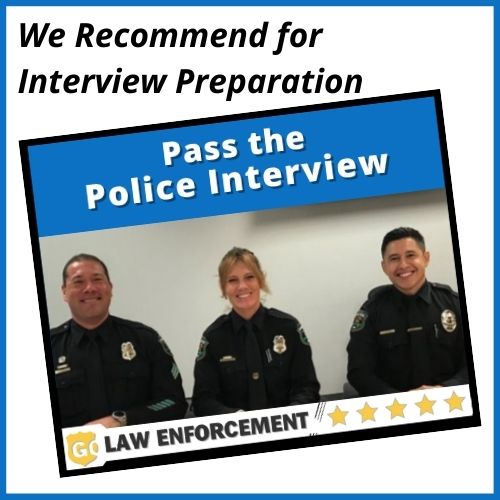The Hiring Process
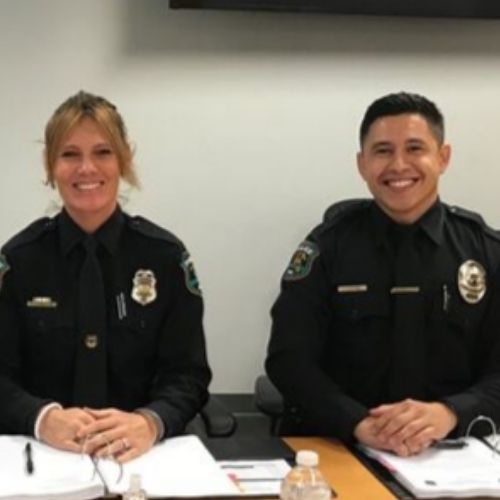
Becoming a police officer requires patience, determination, and proper preparation by the candidate who is applying for the job. The hiring process of each department includes several common elements such as a written exam, police interview, background check, physical agility test, the psychological, and the polygraph. However, the most important, and for most people the most difficult one is the Police Interview.
The Police Interview is the most important one because it will determine if you get hired. It is the most difficult because passing the Police Interview isn’t enough, you have to get one of the top scores.
There is an endless list of very qualified individuals who did not hired because they did not know how to properly prepare for the Police Interview. Below, you will find out how you can avoid this, and be hired so that you can begin your law enforcement career.
The Interview Panel
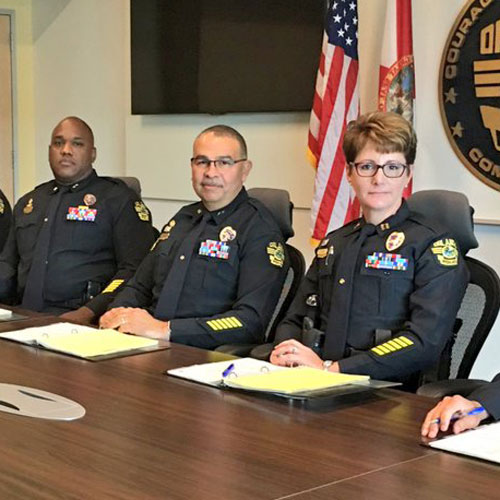
There is a panel that you will sit across from that will be asking you questions and scoring your answers. This panel, often called the “Oral Interview Board” usually consists of The board consists of a panel of people, usually 3 to 5 people including people who currently are in the job you are applying for, supervisors in that agency, and possibly people from other divisions within that city or county. There may be members of the panel who are from the community.
They will be in uniform and it will be an intimidating experience. They are not they to put you at ease. Law enforcement officers need to function well under pressure and the interview is one way to determine how a candidate will function under stress.
The hiring agency will spend a lot of time and money going through the hiring process to select an individual. They will also spend time and money training an individual. Therefore, it is vital for the interview panel to make a good selection. A good selection is someone who will make it through the training process and will represent the department professionally and serve all members of their community.
How Long is the Police Interview
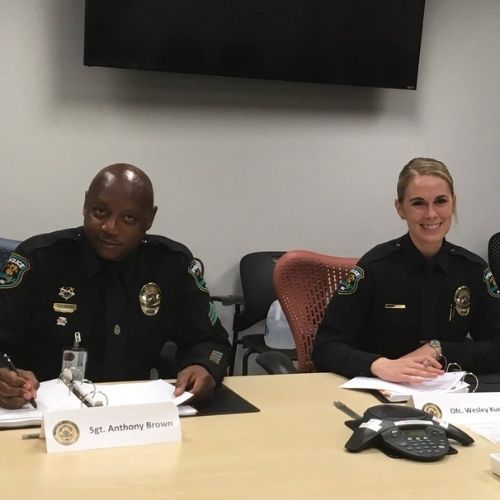
The police oral board interview is usually between 30 and 50 minutes. It can be shorter or a bit loger. The interview panel is on a very tight schedule with specified blocks of time allocated to each interviewee. Therefore, it is vital for applicants to show up on time.
It is not unusual for an applicant to want to get out of the interview room as fast as possible, not providing detailed answers to questions. Sometimes there is 30-minutes allocated to each interview, and an applicant is done in 10 minutes. That person did not pass the interview. It is important to use all of the time allowed as an opportunity to let the panel know why you are the ideal candidate for the job.
When an applicant’s main purpose is to finish the interview as quickly as possible and get out of there, it is painfully obvious to the interview panel and results in a poor interview score.
How Many Interview Questions
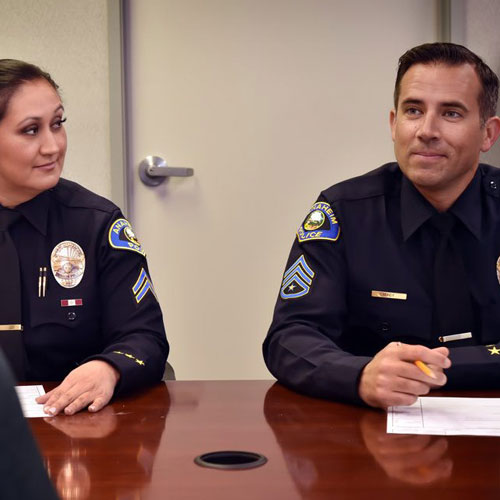
Generally the interview panel will ask 6-8 questions. The questions are all determined ahead of time and every applicant will be asked the exact same questions. The panel may or may not be able to ask follow-up questions. Therefore, how an applicant answers each question is vital because they may not have an opportunity to add information to their initial response.
How much information to provide, without going into too much detail, is very tricky. This is an areal where almost all struggle. A proper balance by knowing what is and isn’t beneficial to say is what makes for a great interview.
All of the questions are designed so that they do not require any law enforcement experience. Therefore, applicants will not be required to know the law, or police procedures.
Types of Police Interview Questions
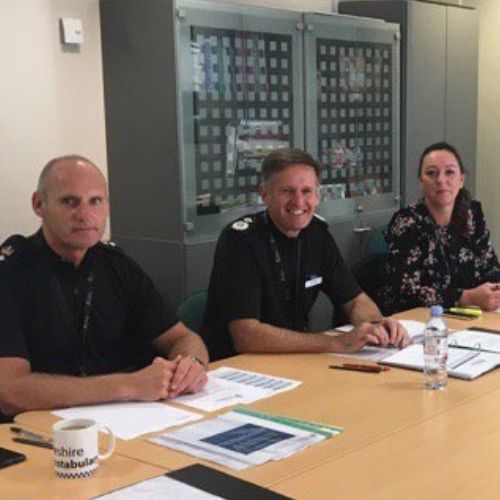
There are two types of questions that will be asked:
The first part of the oral board interview examines your personality, your background, your understanding of the job, and your motivation for wanting to be a law enforcement officer.
The second part of the oral board interview tests your judgment and problem-solving abilities via the so-called scenario-based questions.
There are certain questions that are asked in most police interviews. A good preparation program will let you know what they questions are and how to provide job winning answers.
How is the Police Interview Scored
Each member of the interview panel will score each answer based upon a predetermined set of criteria. When an applicant is providing their answer, the panel member will look at their scoring sheet and see what number, usually between 1-9, their answer corresponds to.
The applicant will then receive a total score, and that determines where on the hiring list an applicant will be placed.
- The first group is candidates with scores between 90 and 100 and those stand the highest chances of getting recruited if they complete all the other tests and elements successfully.
- The second group includes candidates with scores from 80 to 89 points. If you are in this group, you still have a chance of becoming part of the agency.
- The third group includes candidates with scores from 70 to 79 points. If you have ended up in this group, your chances of getting hired are quite slim but still, you have not failed the interview.
How to Prepare for the Police Interview
Knowing what will be the likely questions to be asked, and what good answers to those questions are, is what a good interview prep program will provide. It is very difficult for someone who has not had the benefit of a good interview prep program to compete again someone who has had the benefit of a good interview prep.
The Interview Prep we recommend is Pass the Police Interview prep program by Special Agent (former) Joe Libowsky. He covers all of questions that are commonly asked and provides great responses. He teaches how to customize answers to fit each applicants background as well as being specific to the agency that they are applying with.
Find out more about Pass the Police Interview prep program.

 Joseph Libowsky,
Joseph Libowsky,